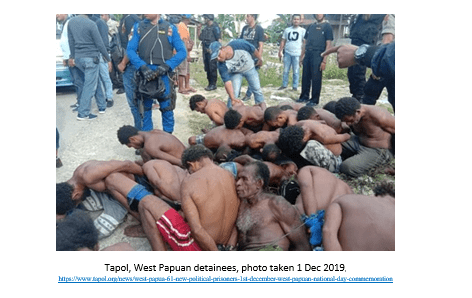The origins of the West Papuan genocide
Presenter: Julian McKinlay King, PhD candidate, Politics and International Studies, University of Wollongong
Time: 9.30-10.30am, Friday 15 May
Join via Zoom: Click this link and enter the meeting password 348111
Human rights violations occurring in West Papua have been described by legal scholars, academics, and regional church bodies as meeting the definition of genocide under the 1948 Convention for the Prevention and Punishment for the Crime of Genocide. Mass murder, torture, disappearances, infanticide, and forced child indoctrination into Islam are well documented. As many as 500,000 people are estimated to have been killed since the United Nations transferred administration to Indonesia in 1963. While the United Nations High Commissioner for Human Rights, foreign diplomats, and the international media have been promised access to West Papua by President Widodo since he came to office five years ago, the Indonesian military continue to block access amid increasing violence, arrests, murders and refugees fleeing across the border to Papua New Guinea. Since the fall of the Suharto military dictatorship in 1998, some scholars suggest Indonesia has entered a new period of reformasi with a modern democratic political system and an end to military corruption and oppression. Such is clearly not the case. This paper seeks to explain why the Indonesian military is endemically corrupt and has continued to engage in extreme human rights violations.
Julian McKinlay King is a doctoral candidate in Politics and International Studies at the University of Wollongong studying the Organisasi Papua Merdeka or Free Papua Movement in their struggle for independence. He has published on West Papua’s legal status and the United Nations:
- McKinlay King, J. with Johnson, A. 2018, ‘West Papua Exposed: An Abandoned Non-Self-Governing or Trust Territory’, Griffith Journal of Law & Human Dignity, vol. 6, no. 2.
- McKinlay King, J. 2019, ‘A Soul Divided: The UN’s Misconduct over West Papua’ PORTAL Journal of Multidisciplinary International Studies, vol. 16, no. 1-2.
Enquiries to: Karin von Strokirch



Recent Comments